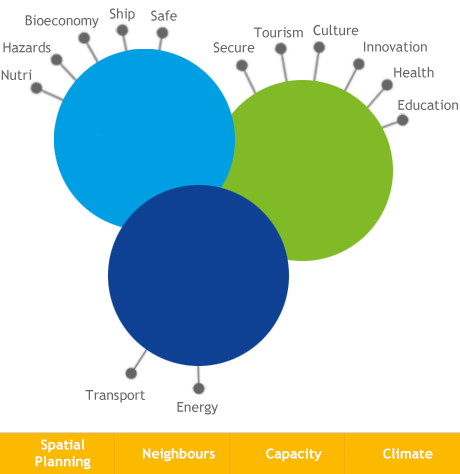
Bioeconomy in the Baltic Sea Region
The Baltic Sea Region has the potential to become one of the world's leading regions in green growth and sustainable development. The region has well-developed infrastructure, technological and environmental knowledge and a large concentration of biomass. Last but not least, relevant actors in the region acknowledge a common responsibility and the need for close cooperation between research institutions, regional, national and local authorities and the business sector in order to face these challenges. (source: http://bsrbioeconomy.net/about.html )
Policy Area Bioeconomy consists one of 13 policy areas, and the Policy Area Bioeconomy is divided into three priorities:
Save the Sea
Increase Prosperity
Connect the Region
Policy Area Bioeconony has three partners from Finland, Sweden and Lithuanian.
The Nordic Council of Ministers leads the work of bioeconomy
Jordbruksverket from Sweden coordinates the fisheries policy (web page in Swedish)
Ministry of Agriculture and Forestry from Lithuania coordinates the cooperation of rural development programmes.
The responsibilities of the Ministry of Agriculture and Forestry include nutrient recycling. The aim is to develop new techniques and methods for processing farm animal manure in a way that valuable nutrients contained in it are efficiently recycled and utilized. Animal manure may be used as fertilizer on arable land. Another aim is to prevent nutrient leaching into water bodies.
More information about Bioeconomy in the Baltic Sea Region:
(Kuva: www.balticsea-region-strategy.eu/)


